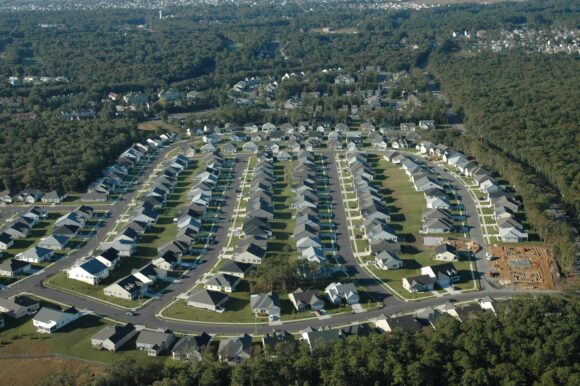
Aerial photo of new and ongoing residential development in the Southern Barnegat Bay watershed. Photo credit: Lisa Auermuller.
By Rick Lathrop, Director- Rutgers Center for Remote Sensing & Spatial Analysis
Helping guide investments in ecosystem health that also benefit local communities is smart public policy. Barnegat Bay on New Jersey’s central coast is recognized as a nationally significant coastal system and was designated as 28th National Estuary Program site by U.S. Environmental Protection Agency.
Unfortunately, as a consequence of watershed urbanization and non-point source (NPS) pollution, the Bay has experienced a gradual decline in ecological health. To try to reverse these declines, the New Jersey Department of Environmental Protection allocated $10M in grants to support restoration, enhancement, and protection strategies that address NPS pollution within the Barnegat Bay Watershed.
A research team from the Rutgers Center for Remote Sensing & Spatial Analysis, Stevens Institute of Technology, the New Jersey Institute of Technology and the Jacques Cousteau National Estuarine Research Reserve has been awarded $775,000 to develop a watershed restoration plan for southern Barnegat Bay-Little Egg Harbor.
In addition to assessing the major problem areas for water quality degradation, the project will identify management strategies to address NPS pollution and storm water runoff. A portion of the monies will be dedicated to on-the-ground installation of various “green” infrastructure technologies to demonstrate their efficacy.
The two year project will kick off with an outreach effort to engage local municipalities, residents, businesses, and other local organizations. These groups’ involvement will be key to the prioritization and implementation of environmental management and conservation practices to improve their local watershed and Bay.

